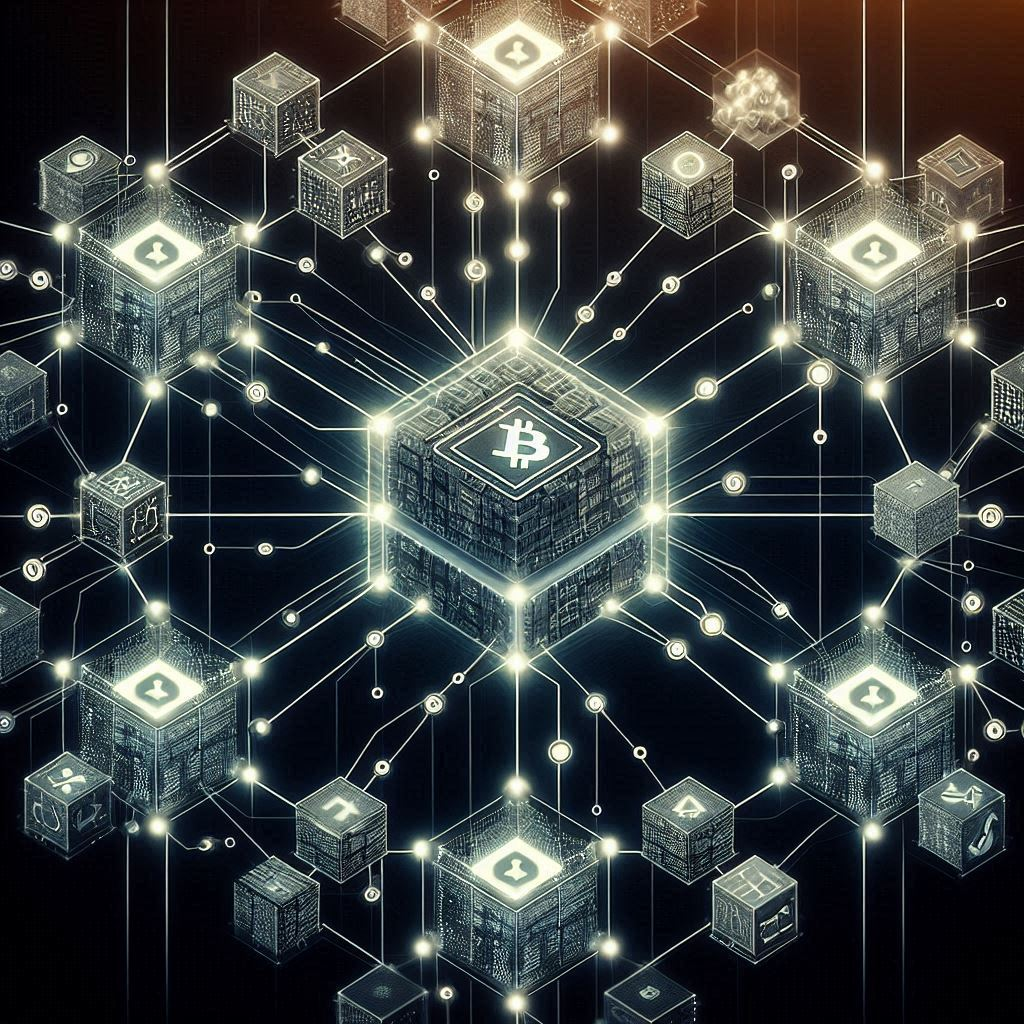What is Blockchain?
Blockchain is a decentralized digital ledger that records transactions across many computers in such a way that the registered transactions cannot be altered retroactively. This ensures transparency and security.

How Blockchain Works
- Transaction Initiation: A transaction is requested.
- Block Creation: The transaction is represented as a block.
- Block Broadcasting: The block is broadcast to all nodes in the network.
- Validation: Nodes validate the transaction using consensus algorithms.
- Block Addition: Once validated, the block is added to the chain.
- Completion: The transaction is complete and recorded permanently.
Practical Use Cases
- Finance: Blockchain is widely used in financial services for secure and transparent transactions. For example, JPMorgan Chase uses blockchain for real-time settlement of interbank transactions¹.
- Supply Chain Management: Companies like Walmart use blockchain to track the journey of food products from farm to table, ensuring transparency and safety².
- Healthcare: Blockchain helps in maintaining secure and immutable patient records. MediLedger is a blockchain-based project that ensures the integrity of pharmaceutical supply chains³.
- Voting Systems: Blockchain can be used to create secure and transparent voting systems. Voatz is a mobile voting platform that uses blockchain to ensure the integrity of election results⁴.
- Digital Identity: Blockchain provides a secure way to manage digital identities. Civic is a blockchain-based identity verification technology that allows individuals to control their personal information.
Real-World Implementations
- Bitcoin and Cryptocurrencies: The most well-known application of blockchain is in cryptocurrencies like Bitcoin and Ethereum, which use blockchain to secure and verify transactions.
- Smart Contracts: Platforms like Ethereum allow for the creation of smart contracts, which are self-executing contracts with the terms directly written into code.
- Decentralized Finance (DeFi): DeFi platforms like Uniswap use blockchain to create decentralized financial systems that operate without traditional intermediaries.
- NFTs (Non-Fungible Tokens): Blockchain is used to create and trade NFTs, which are unique digital assets. Platforms like OpenSea facilitate the buying and selling of NFTs.
Blockchain technology is revolutionizing various industries by providing secure, transparent, and efficient solutions. If you have any specific questions or need more details on any of these use cases, feel free to ask!
¹: Built In
²: G2
³: UBC Digital Magazine
⁴: BloomTech
: Built In
: G2
: UBC Digital Magazine
: BloomTech
: Built In
Source:
(1) 16 Blockchain Applications and Real-World Use Cases. https://builtin.com/blockchain/blockchain-applications.
(2) 26 Top Blockchain Applications and Use Cases in 2024 – G2. https://learn.g2.com/blockchain-applications.
(3) Blockchain Use Cases: 5 real-world examples – BloomTech. https://www.bloomtech.com/article/blockchain-use-cases.
Leave a Reply